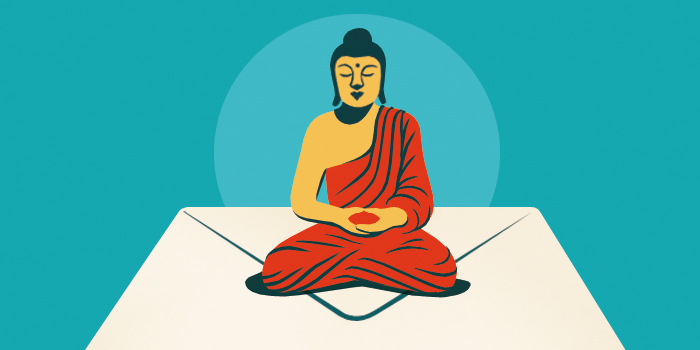Do Buddhists believe in God?
In a word, no. There is no divine creator god or supreme being in the Buddhist teachings, so that Buddhism is often called a nontheistic religion. The historical Buddha began as an ordinary person, who gained awakening by training his own mind and apprehending the true nature of reality. His enlightenment wasn’t bestowed through communion with a superior, external force but through his own efforts. And that’s a major point of the Buddhist story. From the Buddhist point of view, a personal god isn’t necessary: we each have the raw material to achieve our own liberation.
Then again, most Buddhist traditions have a cosmology populated with deities and other supernatural beings. Even the earliest Buddhist texts refer to the Indian gods and metaphysical creatures who made up the spiritual milieu of the time. According to legend, the gods watched over the Buddha’s path—from past lives to enlightenment—and rejoiced on the night of his awakening. But it’s important to remember that in all these stories, the celestial beings themselves are caught up in the cycle of death and rebirth—they may have extraordinary powers, but they haven’t reached the Buddha’s level of attainment.
Still, in many traditions, deities and other metaphysical beings offer significant help to practitioners. And in some branches of Buddhism, such as Japanese Pure Land (aka Shin or Jodo Shinshu) Buddhism, devotion to the “other power” of the Buddha Amitabha forms the heart of the practice.
Tibetan Buddhism in particular developed a pantheon of vivid and elaborate deities that appear in scripture and iconography. Many of these are considered Buddhas, and they are used for visualization practice, in which meditators imagine themselves to be these deities in order to internalize their qualities.

Tricycle is more than a magazine
Gain access to the best in sprititual film, our growing collection of e-books, and monthly talks, plus our 25-year archive
Subscribe now